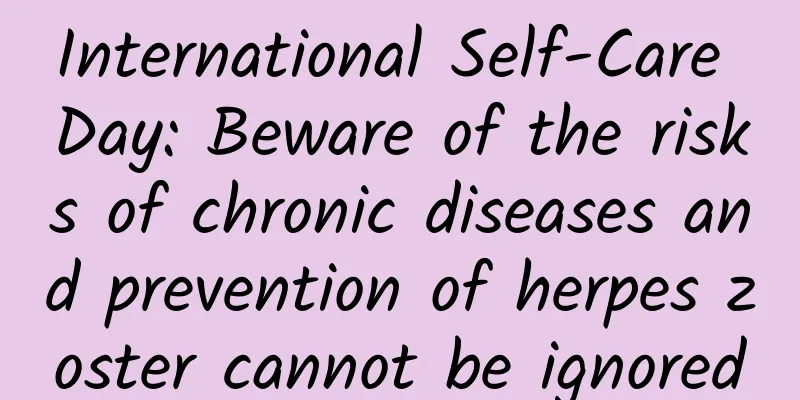Now I know why I often feel dizzy!

|
Dizziness is a common thing in daily life. Sometimes you may experience dizziness when you suddenly stand up or get up. There are many reasons for dizziness, which may be disease factors, such as colds, fever, anemia, blood pressure disease, etc. Dizziness is not a big deal, but it is not a small matter either. It is necessary to take it seriously, find the cause and prescribe the right medicine. So what are the factors that cause dizziness? 1. Cold Sometimes a cold may be accompanied by symptoms of dizziness. At this time, you must rest well, avoid catching a cold, take medicine on time and drink plenty of water. The dizziness will go away after you recover. 2. Fever Febrile illnesses can also cause dizziness. Because fever consumes a lot of energy and evaporates a lot of water, weakness and dehydration after the fever subsides are normal. Dizziness is caused by the dilation of skin blood vessels, increased blood flow and reduced blood flow to the brain. 3. Hypertension Long-term high blood pressure leads to insufficient blood supply to the brain, which is one of the causes of dizziness. When people with low blood pressure have a drop in blood pressure, the blood flow to the brain will decrease, causing insufficient blood supply to the brain, resulting in cerebral ischemia and hypoxia, which in turn causes dizziness. 4. Cerebral arteriosclerosis Cerebral arteriosclerosis reduces the inner diameter of blood vessels, reduces blood flow in the brain, causes insufficient blood and oxygen supply to the brain, and causes dizziness. 5. Anemia Dizziness is a common typical symptom in the early stages of iron deficiency anemia. The cause of dizziness in anemia is iron deficiency in the body, which causes a decrease in hemoglobin, affecting the ability of hemoglobin to carry oxygen. Therefore, anemia patients often experience dizziness. 6. Arrhythmia Some more serious arrhythmias can cause dizziness, such as paroxysmal supraventricular tachycardia, frequent premature beats, severe atrioventricular block, etc. 7. Pregnancy Dizziness is a common symptom in pregnant women. In mild cases, the head feels heavy and the feet feel light-headed, and walking is unstable; in severe cases, the eyes become black and the patient suddenly faints. Health knowledge 8. Others Lack of rest, excessive hunger, sudden standing, excessive computer use, etc. may all lead to insufficient blood supply to the brain and symptoms of dizziness. |
<<: Do you know how to massage your shoulders and neck for fatigue?
>>: [Health Science] Do women with cervical cysts need surgery?
Recommend
After heavy rain, food safety requires four musts and seven don’ts!
Since July 29, Beijing has been hit by heavy rain...
What medicine can be used to induce abortion?
After a pregnant woman becomes pregnant, she is c...
When is sugarcane available? How to store sugarcane?
Sugarcane is a winter fruit that is not only deli...
The best treatment for ovarian cysts
We know that the ovaries play a very important ro...
What to do if you have premature menopause
Normally, women will not stop menstruating until ...
Can I have medical abortion at 20 weeks?
When a woman finds out that she is 20 weeks pregn...
Can I inject hyaluronic acid while breastfeeding?
Hyaluronic acid is a large molecular glucosamine ...
Are the small fragments picked off from the teeth a sign of tooth damage?
gossip “Sometimes you can pick off small pieces o...
Picture of fetal sac after medical abortion for more than 40 days
After an unexpected pregnancy occurs, if you cann...
Severe urinary frequency in late pregnancy
The late pregnancy is a very important period. Af...
What to do if the breast is blocked
Blocked mammary glands in women will affect the s...
Where should women with dampness be moxibustioned?
Moxibustion is a form of traditional Chinese medi...
What tests can women with kidney deficiency undergo to treat it?
In the general concept, people think that kidney ...
What is the meaning of Zero Dragon Tower?
What does Zero Dragon Tower mean? Recently in LOL...
How long does it take for a pregnant woman to give birth from the time her water breaks?
Most women will experience symptoms when giving b...









